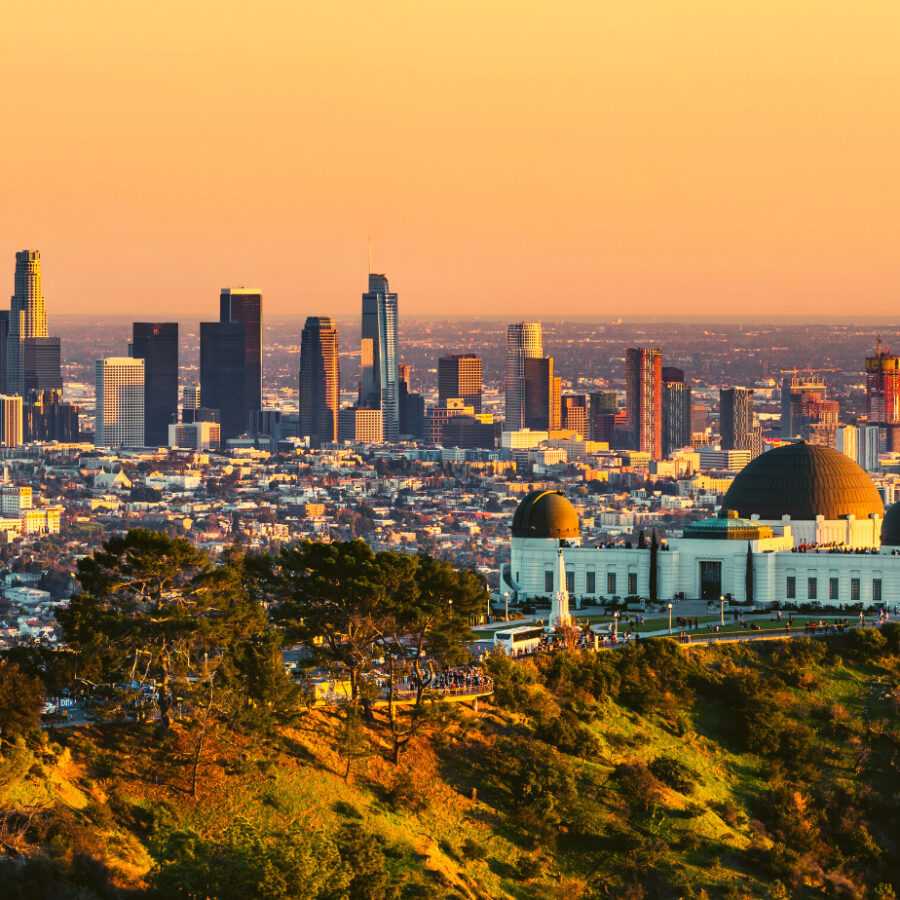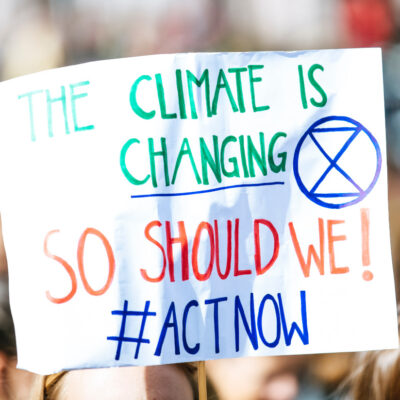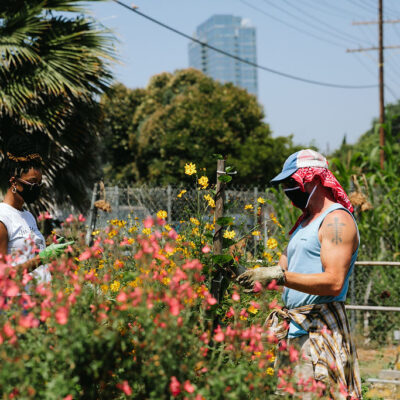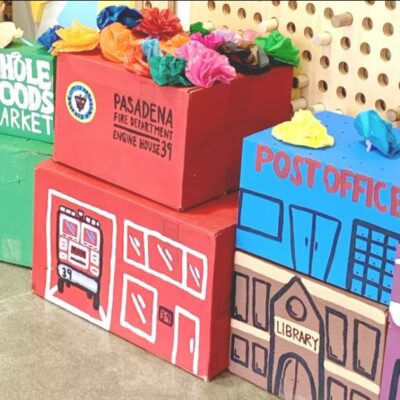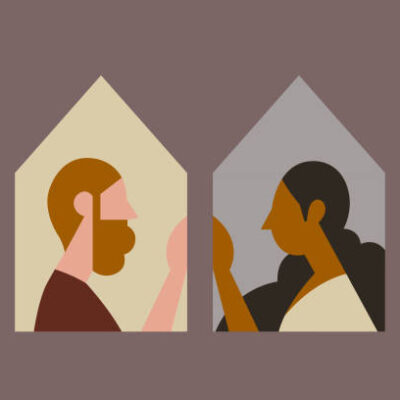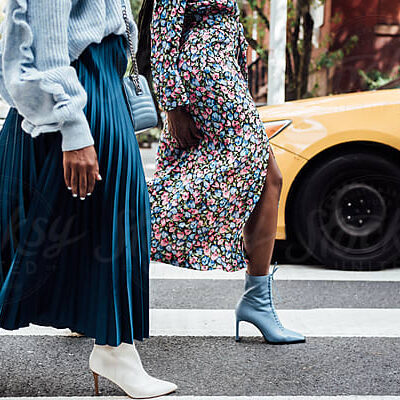We discuss how to manage climate anxiety in a time of environmental crisis, highlight the importance of BIPOC Mental Health Month and examine a few simple ways to live more sustainable lives.
|
Hi folks,
Another month has come and gone.
This month I took some time off. I traveled to visit family, and it was mostly wonderful. There were some travel hiccups and challenges, and we were confronted with some pretty extreme temperatures. While we would usually stay inside when it’s 100 outside, we were committed to making the most of our trip, and we did. But the climbing temperatures and the constant news cycle that seemed focused on climate change activated my climate anxiety. And I was already feeling climate guilt for flying, so climate change has been on my mind a lot lately.
This month’s blog article is about climate anxiety (climate despair and climate grief) and what we can do to manage these challenging feelings.
Remember that you’re not alone if you’re also struggling with this issue. I hope our article helps you find ways to take care of yourself while also working to care for the planet.
And if you’re needing support, as always, we are here. Our email address is info@takeroottherapy, and you can reach us by phone or text at (323) 388-5578.
Warmly,
Saba Harouni Lurie (she/her/hers)
On The Blog
What is Climate Anxiety?: How to Cope with Climate Anxiety in an Uncertain Future
Today I made a quick trip to the grocery store. I made sure to bring along my reusable tote and tried to make sustainable choices, like purchasing the juice that comes in a glass bottle because I feel more confident it’ll be recycled. Then I looked over and watched the person next to me purchase three packages of single-use plastic water bottles… and my head started spinning as I thought about the implications. I stepped out of the grocery store, noticing that it was still 90 degrees outside at 5:30 pm. And then I reminded myself that even though I could have walked to the store, I still drove, further contributing to the worsening climate crisis. I felt helpless, ashamed, and overwhelmed when imagining the future of life on our planet and in Los Angeles. Thoughts like this have crossed my mind for years, but my fears about our world have been increasing with the worsening conditions. And I know I’m not alone…
How to Help
July is BIPOC Mental Health Month
Call us biased but we are strong proponents of the idea that therapy is for everyone. Unfortunately, cultural taboos present in many minority communities, as well as systemic forms of oppression intended to keep people disenfranchised, have helped to create a pervasive lack of mental health care in communities of color. Add to this the particular challenges of navigating a society steeped in racism and oppression and as a result, many BIPOC folks grow up in an environment where being depressed, anxious and living with the effects of trauma become normalized. And as we’ve found across many communities, this can create a cycle of poor mental health that continues with each subsequent generation.
In recent years, however, many BIPOC people (and young people in particular) are joining a growing movement to normalize mental health care in their communities. From resources like Therapy for Black Girls to the Indigenous Circle of Wellness to the Inclusive Therapists Community, there are now more resources than ever before that are designed to help people from marginalized groups find accessible and culturally competent care. We’ve begun to see a broader, societal shift as well with prominent celebrities and athletes of color using their platforms to mega-phone the importance of caring for one’s mental health. But even with all of the strides that have been made regarding mental health care access for minority groups, there’s still much more work that needs to be done in order to sufficiently address the various mental health crises faced by communities of color.
One way to help is through supporting these organizations with time and resources. The Inclusive Therapists Community, for example, has started a Mental Health Liberation initiative that offers several opportunities to help connect BIPOC people with quality mental health services. The Loveland Foundation is another great nonprofit that has set up a therapy fund which aims to cover all or most of the cost of therapy for BIPOC folks experiencing financial hardship.
Another way to do your part is by amplifying these causes. Simply talking about issues of mental health disparities and access to care with your friends and family or promoting organizations doing this type of restorative work on your social media are just two ways that you can help bring attention and support to this issue.
Take Action to Address Climate Change
Figuring out what you can do to lessen your environmental impact and mitigate the effects of climate change can feel as futile as trying to stop an avalanche but there are actually many ways that we can work to address the climate crisis in our daily lives.
– The fast fashion industry is one of largest polluters on the planet, not only in the manufacturing process, but also in it’s aftermath, which sees a large majority of it’s products ending up in landfills. By donating old garments, buying used and vintage and shopping at sustainable, eco-friendly retailers, we can alleviate some of the environmental impact of our purchasing decisions. It’s also important to remain educated about the sustainability efforts of the companies we do give our money to. Truth In Advertising has compiled this helpful list of business that have falsely claimed to utilize climate conscious practices and prioritize environmental stewardship.
– Nearly 40% of all of the food produced in the US is wasted, which is horrific when you consider how many people in the world are struggling with food insecurity but the harm doesn’t stop there. The decomposition of all of this food is also responsible for releasing massive amounts of greenhouse gases after it gets tossed in landfills. And that’s not even taking into consideration how resource intensive and emissions heavy the agricultural and factory farming industries are to begin with. One step that we as individuals can take to lessen our environmental impact is through our food; making the decision to eat greener, more climate friendly foodsand choosing to compost biodegradable waste are two ways to live a more eco-conscious lifestyle.
– Finally, getting involved in grassroots environmental organizations is a great way to take action in the fight to address climate change. Tree People and Friends of the LA River are two local organizations that can always use volunteers for their climate initiatives but you could always utilize Idealist to find nonprofits that are doing environmental work that speaks to you.
Community Events
Become a Dig-In Volunteer with LA Green Grounds
Our Dig-ins or “gardening parties” are fun for the entire family. In fact, our master gardeners will teach you all there is to know about starting an edible garden. Typically, a Dig-in is held on any given Saturday from 9:30am-3:30pm. We bring the garden tools and the Dig-in host provides water and a healthy lunch. All-in-all, its a good thyme. By signing up to volunteer, you’ll receive notifications 2 weeks prior to every Dig-in event. Volunteer for as many Dig-is as you wish. Please, RSVP right away as Dig-ins fill up quickly. After you RSVP you will receive a 2nd notification with all the details you’ll need about the event. And, if you’d like to volunteer your time, talents and skills in other areas of LAGG operations, please be sure to check all interest that apply. ~See ‘ya at the next Dig!
~FREE~
WHEN:
Whatever Saturday is most convenient for you
9:30am – 3:30pm
WHERE:
Various Locations
Sustainability Sundays at the Southern California Children’s Museum
Let’s get creative at the Southern California Children’s Museum! Part sensory play, part art class and part environmental studies, you’ll learn about the environment and how you can help take care of our planet while exploring items from the museum garden or building amazing creations out of recycled materials.
Event requires registration upon check-in at the museum.
FREE with museum admission ($8/attendee over the age of 1)
WHEN:
Sun, July 31st
2:00pm – 3:00pm
WHERE:
459 E. Colorado Blvd
Pasadena, CA 91011

